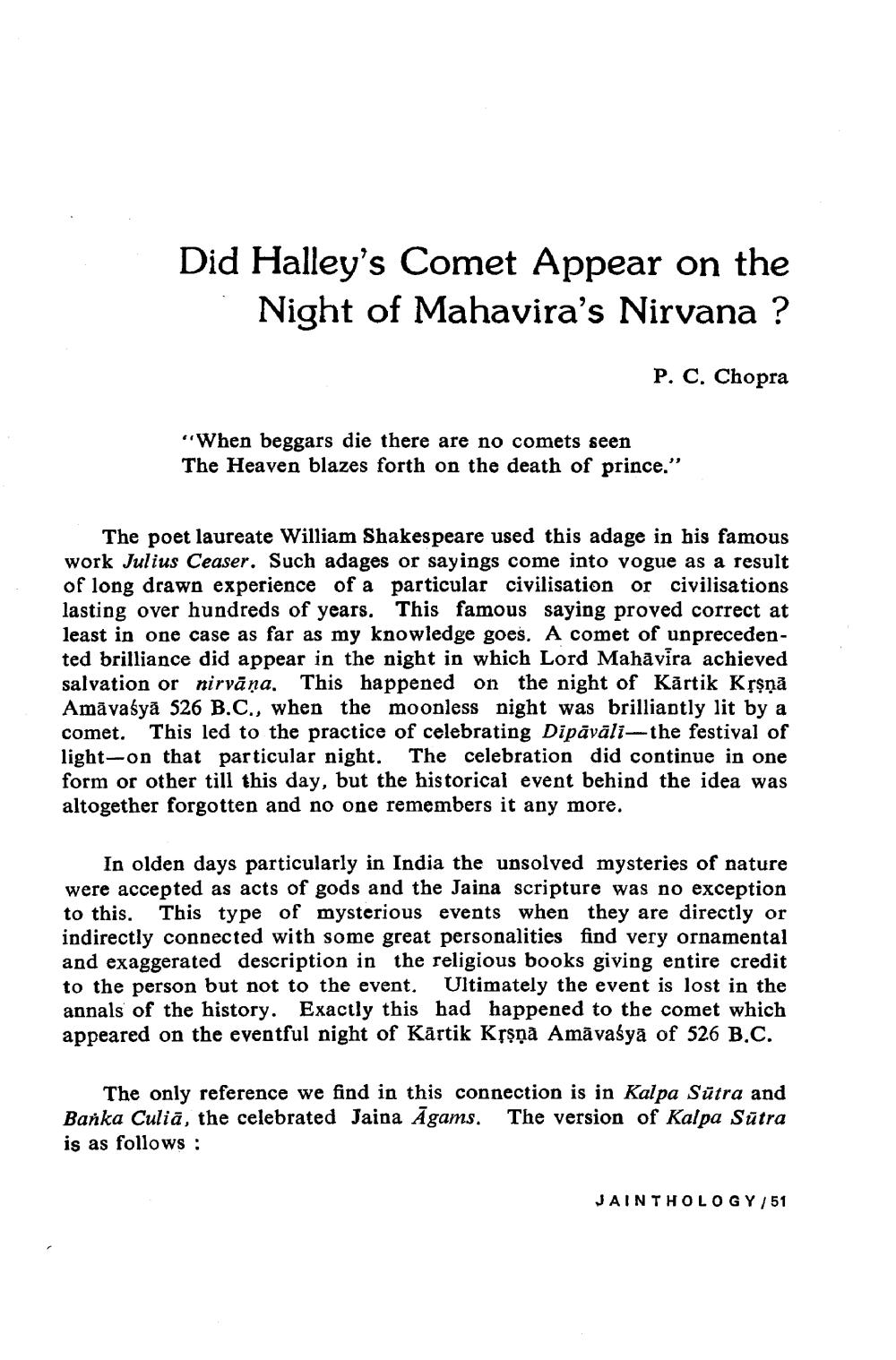________________
Did Halley's Comet Appear on the
Night of Mahavira's Nirvana ?
P. C. Chopra
"When beggars die there are no comets seen The Heaven blazes forth on the death of prince.”
The poet laureate William Shakespeare used this adage in his famous work Julius Ceaser. Such adages or sayings come into vogue as a result of long drawn experience of a particular civilisation or civilisations lasting over hundreds of years. This famous saying proved correct at least in one case as far as my knowledge goes. A comet of unprecedented brilliance did appear in the night in which Lord Mahāvira achieved salvation or nirvāņa. This happened on the night of Kārtik Kșşņā Amavasya 526 B.C., when the moonless night was brilliantly lit by a comet. This led to the practice of celebrating Dipāvāli-- the festival of light-on that particular night. The celebration did continue in one form or other till this day, but the historical event behind the idea was altogether forgotten and no one remembers it any more.
In olden days particularly in India the unsolved mysteries of nature were accepted as acts of gods and the Jaina scripture was no exception to this. This type of mysterious events when they are directly or indirectly connected with some great personalities find very ornamental and exaggerated description in the religious books giving entire credit to the person but not to the event. Ultimately the event is lost in the annals of the history. Exactly this had happened to the comet which appeared on the eventful night of Kārtik Krşņā Amavasya of 526 B.C.
The only reference we find in this connection is in Kalpa Sūtra and Banka Culia, the celebrated Jaina Āgams. The version of Kalpa Sūtra is as follows:
JAINTHOLOGY/ 51




